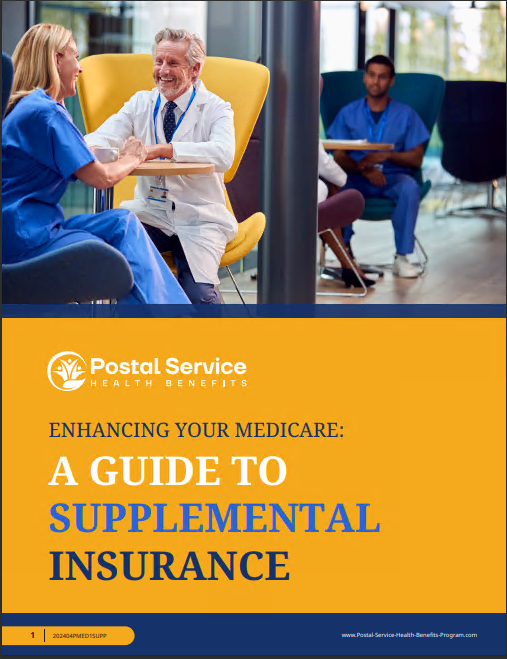Key Takeaways
- USPS retirees can access Medicare home health care services by understanding the eligibility requirements and following the necessary steps for qualification.
- Proper documentation, choosing the right home health agency, and regular communication with healthcare providers are crucial to successfully obtaining Medicare-covered home health services.
USPS Retirees: Steps on How to Qualify for Medicare Home Health Care Services
Retirement is a significant transition, and ensuring comprehensive healthcare coverage is crucial for USPS retirees. Medicare offers valuable benefits, including home health care services, which allow beneficiaries to receive medical care in the comfort of their homes. This guide provides USPS retirees with detailed steps on how to qualify for Medicare home health care services.
Understanding Medicare Home Health Care Services
Medicare home health care services encompass a variety of medical and therapeutic treatments provided at home. These services are especially beneficial for individuals recovering from surgery, managing chronic illnesses, or dealing with disabilities. Medicare covers services such as skilled nursing care, physical therapy, occupational therapy, speech-language pathology services, medical social services, and home health aide services.
Step 1: Confirm Your Eligibility
Medicare Part A and Part B Enrollment
To qualify for Medicare home health care services, you must be enrolled in both Medicare Part A and Part B. Part A covers hospital insurance, while Part B covers medical insurance, including outpatient care and home health services.
Homebound Status
You must be considered homebound to qualify for Medicare home health services. Being homebound means that leaving home requires considerable and taxing effort due to illness or injury. Generally, you need the assistance of another person or medical equipment like crutches, a walker, or a wheelchair to leave home.
Need for Skilled Care
Medicare requires that you need intermittent skilled nursing care, physical therapy, or speech-language pathology services. “Intermittent” means care needed less than seven days a week or less than eight hours a day over a period of 21 days or less.
Step 2: Obtain a Doctor’s Certification
Face-to-Face Encounter
A doctor must certify that you need home health care services. This certification must be based on a face-to-face meeting with you, which can occur either 90 days before or 30 days after the start of home health care.
Plan of Care
Your doctor must establish a plan of care that details the specific services and care you need, the frequency of these services, and the healthcare professionals who will provide them. This plan must be reviewed regularly to ensure it remains aligned with your health needs.
Step 3: Choose a Medicare-Certified Home Health Agency
Finding the Right Agency
To receive Medicare-covered home health services, the services must be provided by a Medicare-certified home health agency. You can find a list of Medicare-certified agencies through the Medicare website or by consulting with your doctor or hospital discharge planner.
Evaluating the Agency
When selecting a home health agency, consider factors such as the range of services offered, the qualifications of the healthcare providers, and the agency’s reputation. Reading reviews and asking for recommendations from friends or family can help you make an informed decision.
Step 4: Begin Receiving Care
Initial Assessment
Once you have chosen a Medicare-certified home health agency, the agency will conduct an initial assessment to determine your specific needs and develop a personalized care plan in collaboration with your doctor.
Ongoing Care and Monitoring
The home health agency will coordinate with your doctor to provide the necessary services according to the care plan. Regular visits from healthcare professionals will ensure that your condition is monitored and your care plan is adjusted as needed.
Step 5: Document Your Care
Keeping Records
Maintain detailed records of your healthcare visits, services received, and the dates of these services. This documentation can help verify the accuracy of your Medicare statements and ensure that you receive the appropriate care.
Reviewing Medicare Statements
Regularly review your Medicare Summary Notices (MSNs) or Explanation of Benefits (EOBs) for any unfamiliar charges or services you did not receive. If you notice any discrepancies, contact your healthcare provider or Medicare immediately.
Step 6: Understand the Costs
Medicare Coverage
Medicare typically covers the full cost of most home health services, provided they meet the necessary criteria. This includes all essential skilled nursing care, physical therapy, speech-language pathology services, and occupational therapy.
Durable Medical Equipment
If durable medical equipment (DME) like wheelchairs or walkers is needed, Medicare generally covers 80% of the approved amount, leaving you responsible for the remaining 20%.
Step 7: Addressing Issues and Concerns
Communicating with Providers
Maintain open communication with your healthcare providers to address any concerns or issues that arise during your home health care. Regularly discuss your progress and any changes in your condition with your doctor and home health agency.
Filing Complaints
If you encounter problems with your home health care services, you have the right to file a complaint. Contact your home health agency to discuss the issue, and if it is not resolved, you can file a complaint with Medicare.
Step 8: Explore Additional Resources
Medicare.gov
Visit the official Medicare website at Medicare.gov for detailed information on home health care services, necessary forms, and contact information for further assistance.
Local Resources
Consult local resources such as community health organizations, senior centers, and support groups for additional guidance and support in managing your home health care needs.
Conclusion
For USPS retirees, accessing Medicare home health care services can significantly enhance your quality of life by providing essential medical care in the comfort of your home. By understanding the eligibility requirements, obtaining the necessary certifications, and choosing the right home health agency, you can effectively qualify for and receive Medicare-covered home health services. Stay proactive, informed, and supported throughout your healthcare journey to ensure you receive the care you deserve.
Contact Information:
Email: [email protected]
Phone: 6235552345






